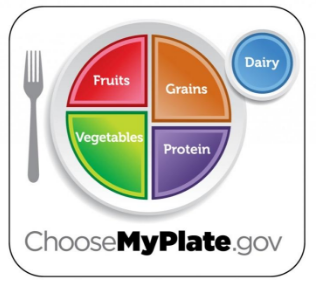Consider Food Your Body’s Fuel
Every year, we celebrate National Nutrition Month in March to bring attention to the importance of eating healthy foods. If you struggle with making healthy food choices or have trouble maintaining a healthy weight, consider these tips to help you “put your best fork forward,” – this year’s nutrition campaign slogan.
Refocus the way you think about food. Think of food as the necessary fuel to run the machine that is your body. This attitude will not only help you pay more attention to what you’re eating, but to also the quantity of food you’re consuming.
Choose high-quality foods for fuel. If you wouldn’t put low-octane fuel into your luxury dream car, then why would you put foods with little nutritional value into your body? Remember, you can’t trade your body in for a newer model. It’s crucial to keep up with its maintenance. Contrary to some advertisements, there is no magic pill or substitute for food. Therefore, you must use food to support your daily functioning.
Eat according to your energy needs. Surprisingly, I have noticed that many of my patients are eating too little – also known as under-fueling. They’re not eating enough high-quality foods to support their energy needs. Frequently, patients report skipping meals because they don’t make time for eating or they purposely cut out meals with the notion that eating less often will result in weight loss. Unfortunately, that is not the case; and making under-fueling a habit can slow down your metabolism to adjust to a lower energy intake.
Don’t skip meals. If you regularly skip a meal, you’re likely to make up those calories later in the day by overeating or over-snacking. At that point, any excess calories will unfortunately be stored as fat.
Eat three balanced meals daily. This helps your metabolism function properly. Include a source of lean protein, a whole grain or starch, and plenty of non-starchy vegetables. Try to eat your first meal within two hours of waking up, and don’t go longer than five hours without eating. If you can’t do this, try to at least have a snack that includes protein. Be sure to stop eating at least two hours before going to bed.
Drink plenty of water. Remember to stay hydrated with plenty of water throughout the day.

